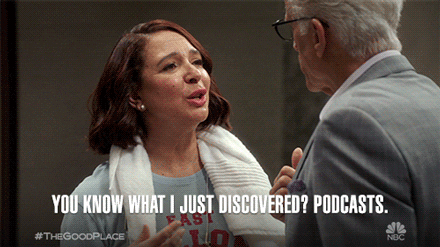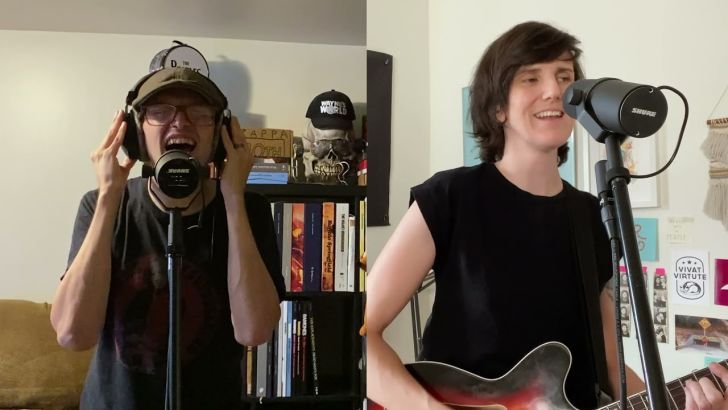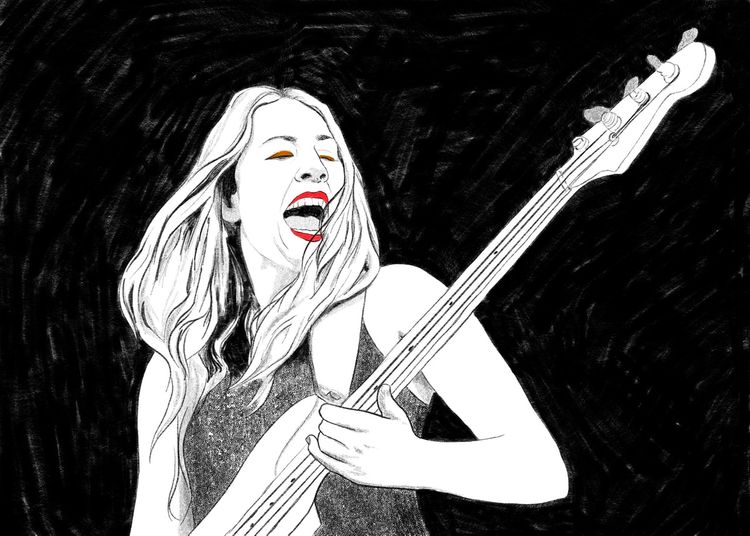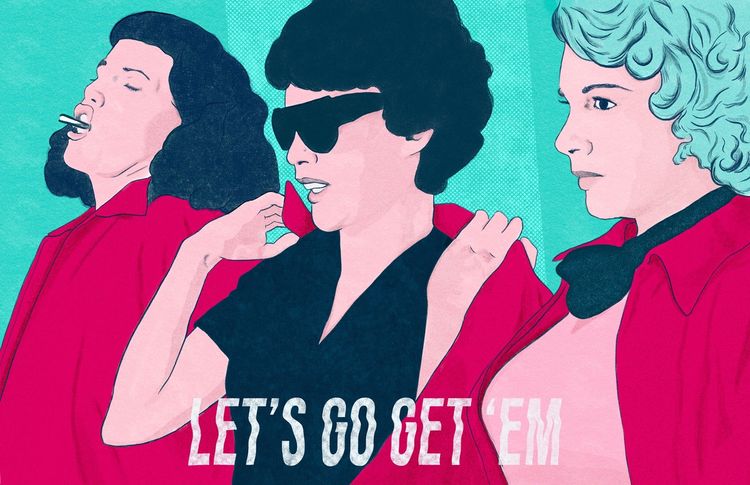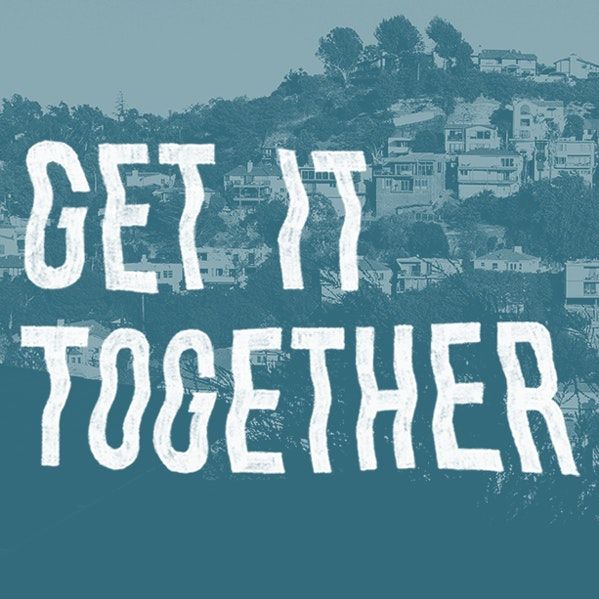I'll Be Gone in the Dark in the bath
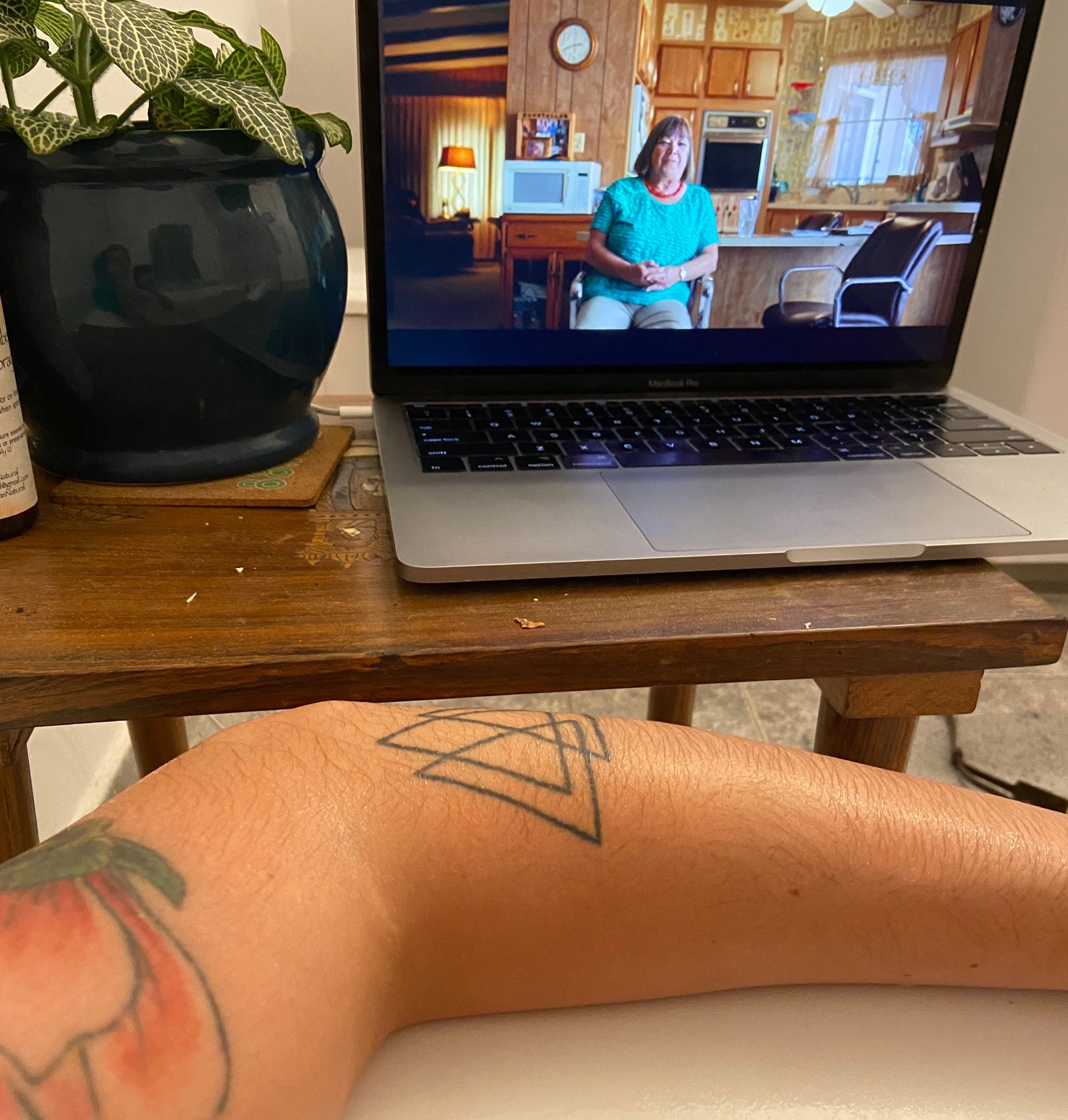
If you need me on Sunday evenings for the next couple months I’ll be watching I’ll Be Gone In The Dark in the bath. There’s a table in my bathroom whose entire purpose is to hold my laptop while I do so. Three small plants live on it too but they’re an afterthought and have learned to accept it.
I’ve been a fan of crime novels and mob movies for as long as I can remember. Whether you’re watching The Godfather or reading Richard Price’s Lush Life, it can all be wildly problematic. Most of them don’t pass the Bechdel test. Female characters tend to be underdeveloped or generally abused, and even Michael Corleone is a piece of shit (hey, no one ghosts 1970s Diane Keaton, okay?). It’s not great.
So when My Favorite Murder came along - a comedy podcast hosted by two women framing True Crime as empowering - you know I hopped on that train. I’ll list my gripes with hosts Karen and Georgia in a minute, but it was through that podcast that I read Michelle McNamara’s book about the Golden State Killer, I’ll Be Gone In the Dark. It’s an investigative dive into the then-unsolved case of a serial killer, serial rapist, and expert burglar who haunted California for decades beginning in the 1970s. Michelle passed away just before Joseph James DeAngelo, Jr, a former police officer, was arrested and charged with those crimes in 2018. He recently plead guilty in court. It’s tragic and fascinating. The book centers on the stories of the survivors and the experience of those he hurt and, to me at least, doesn’t read as voyeuristic or exploitive.
Maybe you’ve already been sucked into the I’ll Be Gone In The Dark wormhole, but there’s also this LA Times article, the LA Times podcast Man In The Window, the second episode of Radio Rental and this My Favorite Murder episode featuring Michelle McNamara’s husband, comedian Patton Oswalt, among other pieces and podcasts. It’s mind boggling and exciting that they somehow finally caught the guy!
In my own weird form of escapism, this is all I’ve been consuming for the past couple weeks in my free time away from our scrolling garbage fire. It plays right into how far the larger conversation about defunding the police and our fascination with true crime still have to go.
While there are certainly podcasts that are raising good awareness for select cases (i.e. Serial / Undisclosed with Adnan Syed, In The Dark with Curtis Flowers, Atlanta Monster and the Atlanta Child Murders), many of them revolve around possibly wrongful convictions without really addressing the concept of incarceration in the first place. While the national conversation is on defunding the police, that hasn’t always translated into also abolishing prisons. So while we consume murder mysteries, or look for justice for victims, we have to also acknowledge that the current system of locking someone up and throwing away the key is not solving the problem of why any of these events are happening in the first place. Arresting someone and giving them a long prison sentence is not the oversimplified blanket end result I’m cheering for.
Like many of my friends, I started listening to the true crime comedy podcast My Favorite Murder and watched them learn from their oblivious comments, change a lot of their language, and generally try better at, you know, getting all their facts straight. I was glad to see two white ladies learning and teaching their huge audience to use the term sex worker. It’s a step. But episodes of My Favorite Murder have also been known to cheer the death penalty, laugh about non-binary gender expression (ugh), and just don’t tell very many stories about POC. I’ll give them the credit of having to grow quickly in the public eye, but they can still do a lot better. I will not apologize for them and I really really want them to do better.
On the flip-side, hosts Karen Kilgariff and Georgia Hardstark started the Exactly Right podcast network that’s home to The Fall Line, “an investigative, narrative, and revealing show focused on the cold cases of marginalized communities in the Southeast.” The network also hosts The Murder Squad, which dives into cold cases in hopes that listeners could help solve them. This week’s episode is on the recent murder of soldier Vanessa Guillen which the military has very much tried to keep out of the media spotlight. The network is doing some good work.
As I try to reconcile these things and choose where to spend my time, the point remains that I wish more of these stories culminated on the topic of restorative justice. That we talked about the grey area more often. That we tried to answer questions that would transform our world into one where we could all walk alone at night and without cops and prisons. That they tackled more of the ways the criminal justice system disproportionately targets Black people and POC in general.
If you’re truly fighting for alternatives to policing and incarceration, it’s a bit hypocritical to clap at the end of a podcast when they say “and they got 35 to life and were never heard from again!” It’s just too easy, too lazy, to think that our solution to everything bad is potentially and simply social death.
To that end, in the land of podcasts, today I’ll be listening to the following:
The Intercept - Ruth Wilson Gilmore Makes the Case for Abolition (Part 1 and 2)
In The Dark - Coronavirus In The Delta
The New Yorker Radio Hour - What Would A World Without Prisons Be Like?
Feel free to share more recommendations in the comments!
I’ll have a big update for y’all next week about some new content, new things for paid subscribers, and a fun snail mail thing (I got a PO box!!). If you’re rolling around the internet, please consider following me and Worriers via the links below:
My artwork on Instagram
Worriers on Instagram • Twitter • Facebook • Bandcamp
